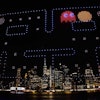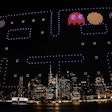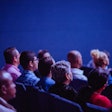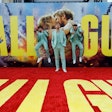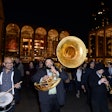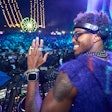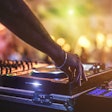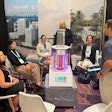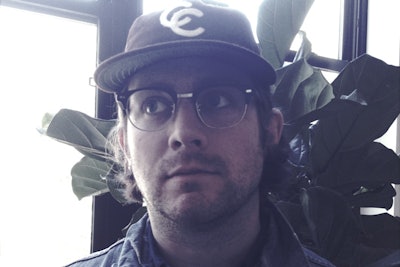
Pitchfork, the independent music publication, hosts its annual festival in Union Park this weekend. Kicking off on Friday, the three-day event will offer performances from nearly 50 acts, including Feist, Beach House, and Vampire Weekend. Founded in 2006, the increasingly popular event draws an average of 20,000 fans a day and—with day passes priced at $45 a pop—is appreciated as one of the most affordable major music fests. As he put the finishing touches on this year's event, Pitchfork president Chris Kaskie spoke with BizBash to fill us in how the event is changing, expanding, and getting ever greener.
What's new about this year’s festival?
While most of our changes are things that the casual onlooker would not notice, [such as] optimizations to the operations of the festival, there are cool things coming up. We have the BookFort, which is presenting the indie publishing world like we've done with Flatstock Poster Fair, Coterie [which showcases artisan-made art, fashion, and accessories], and [the] Chirp [record fair]. Also, we'll have lockers on-site for folks to stash their stuff. We also worked really hard to create a ride-sharing program to cut down on travel emissions, and we're also doubling the size of bike parking. We're streaming the festival this year on YouTube, which is a first for us. Otherwise, as in every year past, it's all about the music.
How did you select the bands this year? Does the selection process involve any kind of crowdsourcing?
Year in and year out, a few of us sit in a room and hash it out. It always tends to be a mixture of what we're really excited about at the moment, what we've never had before, and stuff we'd love to have back because of the undying love we have for their music. There is no outside influence on this process in any form.
What is Pitchfork’s social media strategy for engaging guests and introducing them to your bands?
Tweets and Facebook posts. [Laughs] Snark aside, we really just look to keep the dialogue focused on what pitchfork.com is publishing daily, much of which covers the artists playing at our festival. So if the audience is clued in to what we're doing on our publication side, the messaging we send out is just an additional outlet for them to receive the content we're publishing. We try very hard to be good on that front, so there isn't a need to overwhelm users on other platforms.
What are some innovative sponsor activations this year?
Purina is coming in and doing some cool stuff, really fun celebrations of pets. Not necessarily groundbreaking, but a fun way to sit back and celebrate what almost everyone on Earth loves. Emusic will also be in to do some cool stuff. We really work hard with all of our sponsors to create stuff that enhances the experience for the user all while representing what they, as a brand, need to accomplish. It tends to be a pretty nice compliment to what's going on.
Pitchfork is known for having affordable tickets. How do you keep costs down for attendees?
We base our ticket prices on what we need to create a sustainable and rewarding festival. Think of it as a "need vs. want" thing. What we charge is what we need to charge. Not to say we want to charge more, though. We like it where it is.
Each year, the festival gets more and more international press. How do you account for that?
I imagine it's a combination of a few things. For one, the artists we cover and that are playing our festival are not just regional or even confined to the U.S. They have international appeal and coverage, and, being an online magazine covering music on an international scale, that tends to create a slow-burn effect. Additionally, last year we did our first Pitchfork Music Festival in Paris, France, which probably leads to more folks from overseas wondering what we do here, and how.
The outlets we grant press credentials [to] are based on the coverage they plan to provide, their support of the fest in the past, this year's fest so far, et cetera. There isn't a set rule to this, but we try to be fair and give everyone equal consideration. We also like a wide range of outlets with differing demographics to be able to attend. We have media attending from all over the world.
Why did you expand to Paris?
Paris is a wonderful city, kind of a combination of New York and Chicago, where Pitchfork has offices. Our French audience is quite large, and the scene there is intense. It felt like a pretty natural fit. We're a bit hard to please, as are they, so we were up for a challenge.
Are you planning to bring the festival to any other cities in addition to Chicago and Paris?
For now, we're entering into our second year [in Paris] and it's expanded in many ways—more days, more bands, more stages—so figuring that out is enough for now. We'll tackle the next thing after we get past these.
What’s your greatest challenge as the event producer?
Making sure that 20,000 people [a day] are safe and having a good time.


